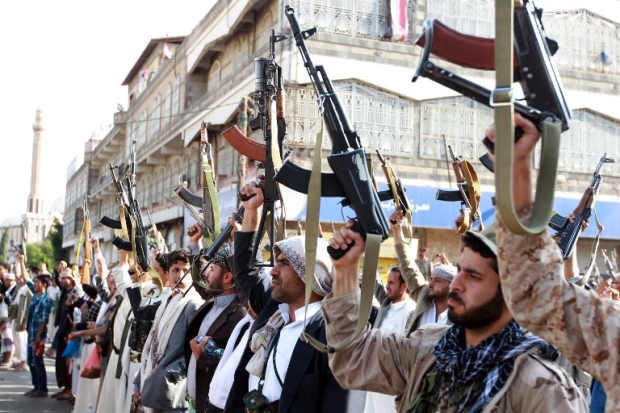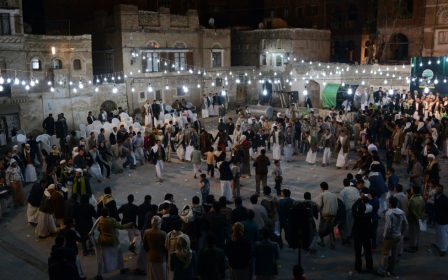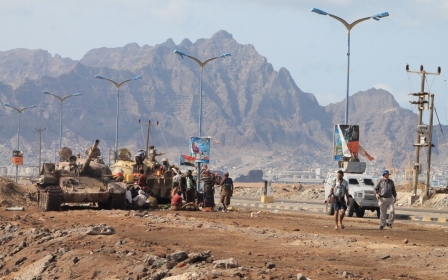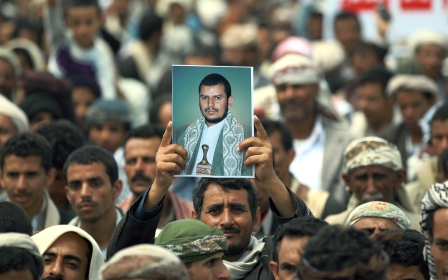Fearing Saudi airstrikes, Yemeni confronts Houthis over school weapons store
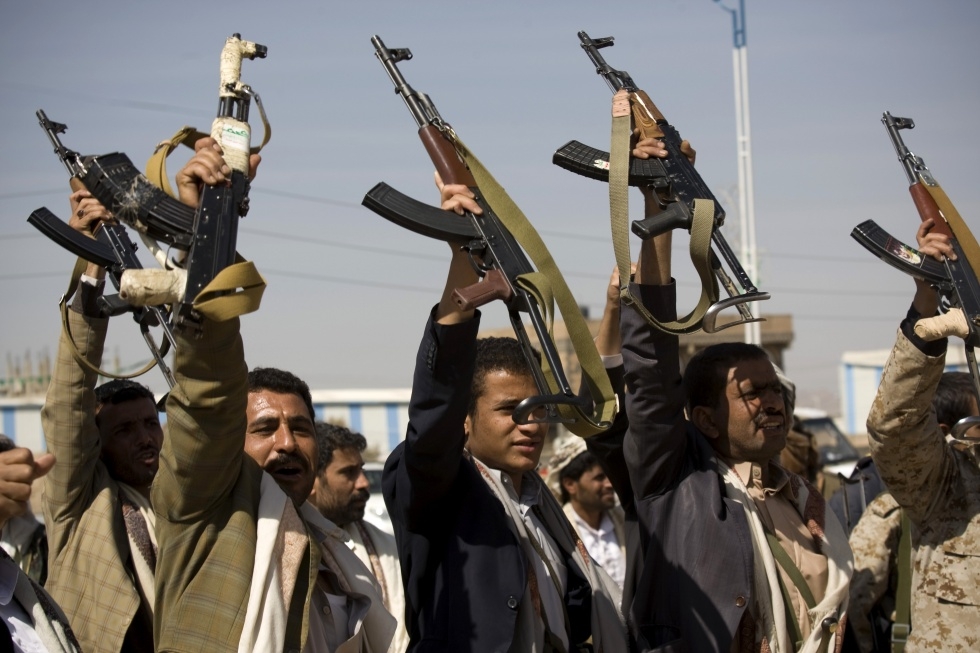
Um Mohammad had been hammering on the gates of Omar Bin al-Khatab school in Yemen’s capital Sanaa for 15 minutes.
Earlier that day the 60-year-old mother of three had heard from a friend that Shiite Houthi militiamen, on the run from airstrikes, had broken into the school a few blocks from her house and were storing weapons in its basement.
Fearing the militants would endanger her neighborhood, Um Mohammed had resolved to confront them.
But the school was shut, its gate padlocked and windows boarded up. Many schools in the capital closed last month when Saudi Arabia and nine other Arab states launched a wide-ranging bombing campaign to reinstate Yemen's exiled president, Abd Rabbuh Mansour Hadi and roll back the Houthis who control Sanaa and other cities.
Rumours that the Houthis were using civilian buildings to hide weapons started circulating last autumn when the militia from Yemen’s north - in alliance with forces loyal to ex-president Ali Abdullah Saleh - swept the capital and began a military campaign to overrun the country.
But hiding the arms they plundered from army bases became a key priority for the Houthis last month when a spokesman for the Saudi-led campaign announced their intention to strike Houthi weapon stores “wherever they were”.
Mohammed Abdullah, a resident of the same Sanaa neighbourhood as Um Mohammed, said that the Saudis' announcement had left civilians scrambling to get as far away as possible from the dozens of Houthi positions dotted throughout the city.
“We took that to mean the coalition would hit any building containing weapons,” he said.
“We know that the Houthis have used hospitals, schools and sport stadiums to amass weapons and those places have been hit by airstrikes,” he said.
One of Abdullah’s neighbours, Ali Abdulbari, said he had seen supporters of the Houthis, also known as Ansar Allah, driving vehicles loaded with Kalashnikovs in and out of Sanaa’s historic old city.
"It makes perfect sense,” Mohammed Al-Hasani, the managing editor of Al-Tagheer news website, told MEE.
“The Houthis are hiding their weapons in different places including the schools, because they know otherwise they will be destroyed by the Saudi-led coalition strikes."
'Buried underground'
Unable to breach the school’s gate, Um Mohamed began petitioning neighbours to help her confront the militiamen.
"Our neighbourhood has become a military outpost… we have to take action,” she told one man, Yahia Hassan.
“If we don’t confront the Houthis our sons and daughters will soon be dead and buried... the strikes will target our neighborhood," she told him.
When contacted by MEE, the Houthis, who in spite of the airstrikes still control the capital, neither denied nor confirmed the allegations that they were stockpiling weapons.
One activist, Hussein al-Boukhaiti, with close links to the Houthis, said the group had deployed fighters to “guard” public institutions.
“Ansar Allah became responsible for the security of the capital and they have the right to walk with their personal weapons such as rifles and grenades," al-Boukhaiti told MEE.
“When citizens see them walk with their weapons they think that Ansar Allah are bringing weapons to the schools," he said.
Al-Boukhaiti said he did not have information about specific schools.
The Houthis' tight grip on the city and recent arrest of several journalists makes accessing the schools where weapons are reportedly stored difficult.
When MEE visited Omar Bin al-Khatab school on Wednesday a passer-by said "do not ask about the school otherwise you are going to be shot dead".
The school's security guard, who refused to give his name and had a rifle bearing the Houthi slogan, muttered something before advising the journalist to leave the area.
Most of the neighbours around the school aside from Um Mohamed were hesitant to talk and said they were afraid of the Houthis and scared that the Saudi-led coalition strikes would target the school and their homes.
New MEE newsletter: Jerusalem Dispatch
Sign up to get the latest insights and analysis on Israel-Palestine, alongside Turkey Unpacked and other MEE newsletters
Middle East Eye delivers independent and unrivalled coverage and analysis of the Middle East, North Africa and beyond. To learn more about republishing this content and the associated fees, please fill out this form. More about MEE can be found here.


